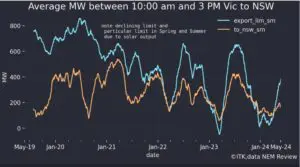Oil and gas majors need to cut their combined production by an average of 35% by 2040 in order to keep global emissions within international climate targets laid out in the Paris Agreement and simultaneously protect shareholder value.
This is the finding from a new study published by independent financial think tank Carbon Tracker which analyses current and future projects in an effort to identify those projects that would still be economic in a 1.6˚C world using the International Energy Agency’s Beyond 2 Degrees (B2DS) scenario – in line with the Paris Agreement’s commitment to limit global temperature rise to “well below” 2°C.
The new report, Balancing the Budget: Why deflating the carbon bubble requires oil & gas companies to shrink, finds that the world’s oil and gas majors as a group must cut production by on average 35% by 2040 to align with the Paris Agreement.
However, drilling down into company specifics shows that the requirements for each company vary wildly depending on the proportion of low-cost, low-carbon projects already in their portfolio.
The report also warns that other fossil fuel producers – especially those with undiversified portfolios – may need to make much deeper cuts to remain in line with the Paris Agreement.
“If companies and governments attempt to develop all their oil and gas reserves, either the world will miss its climate targets or assets will become “stranded” in the energy transition, or both,” said Mike Coffin, Oil & Gas Analyst at Carbon Tracker and report author.
“The industry is trying to have its cake and eat it — reassuring shareholders and appearing supportive of Paris, while still producing more fossil fuels. This analysis shows that if companies really want to both mitigate financial risk and be part of the climate solution, they must shrink production.”
Looking at individual companies the report unsurprisingly finds that none of the world’s oil and gas majors are on track to be aligned with the Paris Agreements by 2040.
However, some companies are closer than others.
Anglo-Dutch oil and gas major Shell boasts the most aligned portfolio of projects but still needs to make cuts of 10% to bring their entire portfolio in line with the Paris Agreement.
On the other end of the spectrum is Texas-headquartered ConocoPhillips which the report finds must make reductions of 85%.
Between the two extremes Carbon Tracker found that American oil and gas major ExxonMobil must cut production by 55%, Italian oil and gas major Eni by 40%, French and American oil and gas majors Total and Chevron by 35%, and British oil and gas major BP by 25%.
And even though each of the seven oil and gas majors highlighted in Carbon Tracker’s new analysis have all set out a range of emission reduction targets and ambitions in response to investor pressure, none have committed to an absolute cap on full-life cycle emissions and the production limits that are necessary to align with Paris.
Further, company targets often only apply to their Scope 1 and 2 emissions – the emissions directly related to production – and fail to include Scope 3 emissions – indirect emissions stemming from both upstream and downstream emissions.
“Only Shell, Total, and Repsol have targets which include the ‘Scope 3’ emissions created by burning their products, which account for the vast majority of CO2 related to fossil fuel use,” said Andrew Grant, Senior Oil and Gas Analyst and co-author of the report.
“While an improvement on many peers, they have only pledged to reduce the carbon intensity of the energy they produce, which means they can continue to grow fossil fuel production — increasing CO2 emissions overall and leaving open the risk of stranded assets. Our climate system works on finite limits, so strategies that allow infinite growth are a square peg in a round hole.”










